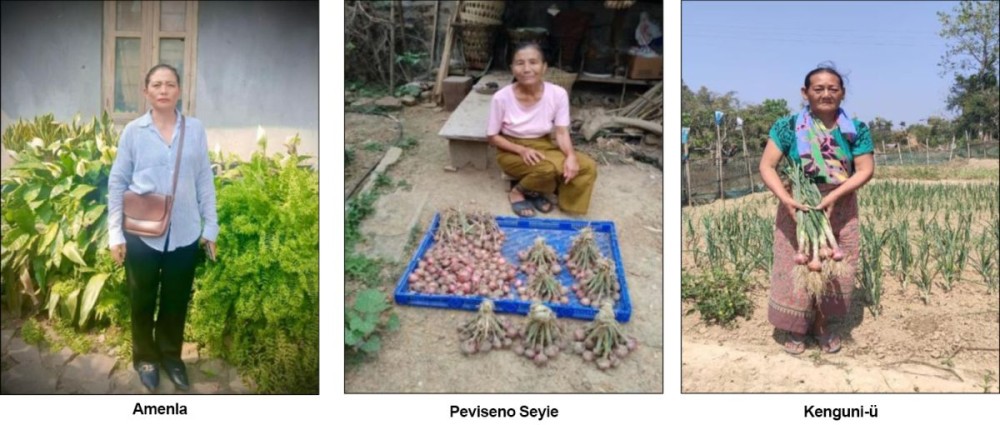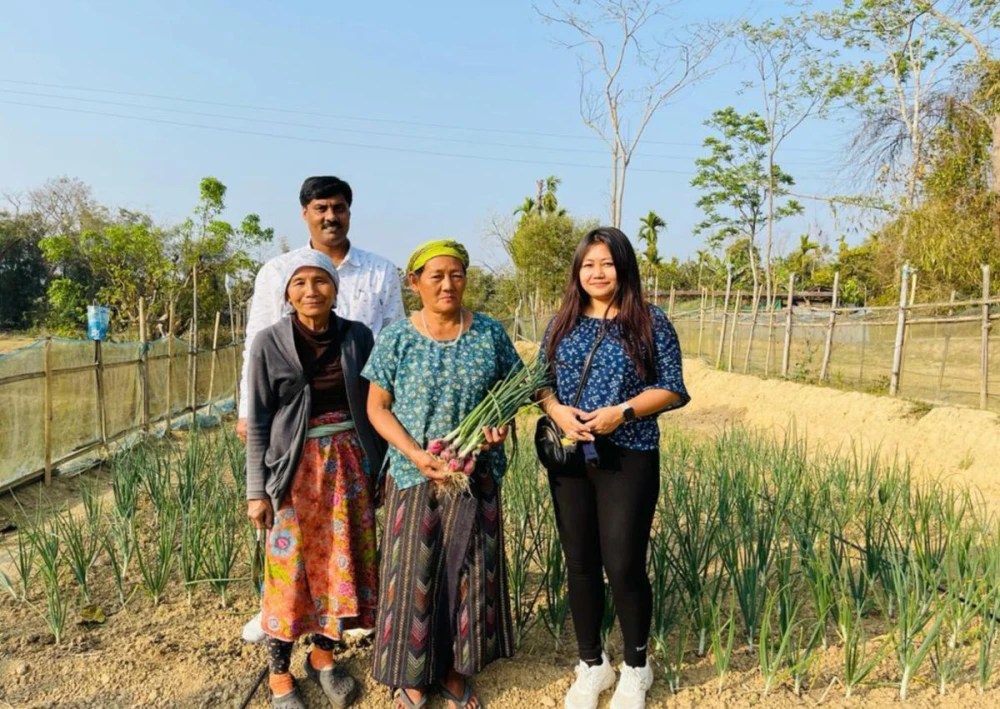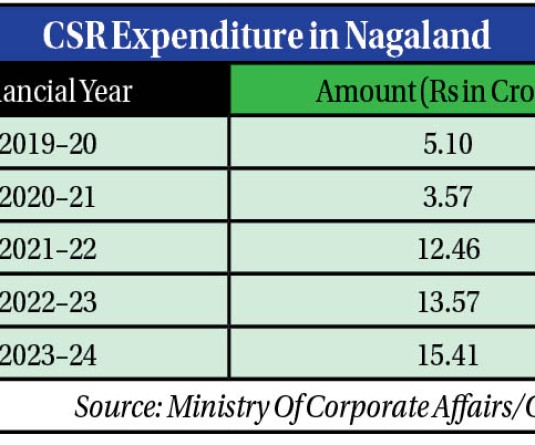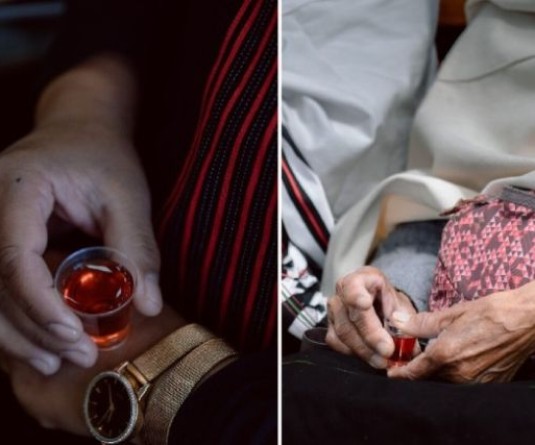
DIMAPUR, OCTOBER 12 (MExN): n New Socünoma village near Dimapur, three women namely Amenla, Peviseno Seyie, and Kenguni-ü, have transformed their livelihoods through onion and garlic cultivation, turning traditional farming into a sustainable source of income and community empowerment.
Supported and trained under the NEH Component of Onion & Garlic, School of Agricultural Sciences (SAS), Medziphema, Nagaland University, and sponsored by ICAR–DOGR, Pune, these women have embraced onion and garlic cultivation as a source of income, empowerment, and community growth. The project, initiated in 2021 by Dr Aastik Jha, Associate Professor at ANDUAT, UP, and Dr Moakala Changkiri, Project Incharge and Scientist at SAS, Medziphema, aimed to promote self-sustenance and livelihood improvement among farmers in Nagaland.
As part of the initiative, farmers were provided with high-quality onion and garlic seeds from ICAR–DOGR, along with essential farming inputs including agro-shade nets, combo sprayers, water pumps, organic inputs, agricultural tools, watering cans, and a power tiller to support effective cultivation.

Amenla, an educated Ao woman and leader of a farmers’ group, began onion and garlic farming on her in-laws’ land. She has now expanded her cultivation to around four bighas, jointly managing a farm in Molvom with a friend. Through her dedication and the technical guidance received, she earns nearly Rs 1.5 lakh annually from rabi onion and garlic. Her success has inspired several villagers to start kitchen gardens and adopt improved farming practices.
Peviseno Seyie, leader of the second group, previously relied solely on paddy cultivation and had limited formal education with no prior exposure to onion farming. Through NEH initiative training and inputs, she courageously took up onion cultivation on 1.5–2 bighas, earning up to Rs 1 lakh annually, and continues to inspire peers with her perseverance and optimism.
Similarly, Mrs Kenguni-ü transitioned from traditional paddy farming to onion cultivation on 1.5–2 bighas of land, generating around Rs 1 lakh annually. This marked a significant transformation from hardship to self-reliance.
The journey of these three women reflects the growing spirit of rural entrepreneurship among Naga women. With knowledge, training, and determination, they have not only secured better incomes for their families but have also paved the way for others to follow. Their story demonstrates how science, when combined with sincerity and hard work, can sow the seeds of change and foster community growth.






